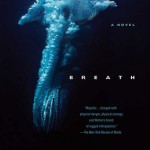 Title: The Yield (Goodreads)
Title: The Yield (Goodreads)
Author: Tara June Winch
Published: Penguin Random House, 2019
Pages: 343
Genres: Historical Fiction
My Copy: Audiobook
Buy: Amazon, Book Depository, Kindle, Wordery (or visit your local Indie bookstore)
While my interest in reading sides more with translated literature, I still read books from local authors. This is mainly as a result of my in-real-life book club that I attend, although I this year has seen more American crime novels sneak into my reading life than the norm. This is the reason I recently read Tara June Winch’s latest novel The Yield. The novel tells a story from three different perspectives and how choices made multiple generations ago still effect people now.
I am unsure if I am out of practice, or just not sure what to say, but I having a hard time trying to put all my thoughts on this book down on paper. Basically, The Yield tells the story of August Gondiwindi who has returned home for her grandfather’s funeral. Knowing he was about to die, he had written down the experiences he had living near the Murrumby River at Prosperous House, on Massacre Plains and a dictionary he was constructing of Wiradjuri words. The third narrative is letters from a German Lutheran missionary, Reverend Greenleaf talking about the early years of the settlers.
These three narratives tell the story of the lasting effects of colonialism, the intergenerational trauma and how it effects the people and the land. I find it had to talk about this novel, but I think this is an important novel to read, especially for white Australia. The narrative from Reverend Greenleaf stood out, due to the way he tried to help the true owners of the land and protect them from greedy white settlers but not every choice he made felt right. He came across as a white saviour, because he was imposing his own values on these people. When World War I hit, he was met with his own hostility from white settlers as a German.
August’s story is the primary plot, and it is interesting that she plays the role of an outsider, someone that has moved away. Tara June Winch is based in France, so the narrative of August feels like it might be autobiographical in the way she might feel, I do not know her story, but I get the sense based on this novel, she might be treated as an outsider for being an Aboriginal to the white people, but treated as an outsider to her country for leaving. This is how I feel August’s narrative works, she still sees herself as part of her community and tries to help but there are people that do not trust her and treat her like an outsider.
Within the August narrative, the area of Massacre Plains is under threat from a mining company that wants to dig up their land for tin. A very relevant topic for Australia, since Rio Tinto has recently demolished a 46,000-year-old Aboriginal site, and they are not the sole culprits. It is said mining giants BHP Billiton have destroyed at least 40 significant Aboriginal sites in the past year. The mining industry in Australia is big business but the cultural damage they are doing to the different Aboriginal lands is beyond reproach.
Essentially The Yield is a novel about the psychological and cultural damage facing the different Aboriginal communities around Australia. You get to see the effects of colonialism, and the damage that is done to these people, plus the current degradation being done by the Australian government and the mining companies that pay those politicians. However, in the midst of all that, Tara June Winch has crafted a stunning novel that is funnier than I expected based on the subject matter. The Yield has been a big success in the Australian literary scene, it even won the 2020 Miles Franklin Literary Award, which is Australia’s highest literary award. The novel is showing up around the world and I hope it has just as much a success there; this really is a great book.











Yes, I also felt that August was a bit of an outsider, one who brings experience of the wider world to locals who welcome her home but may not really want to hear about another perspective.
When I reviewed her collection After the Carnage, I noted that the stories were dissecting the displacement that disrupts the lives of individuals as well as the wider society. As you say, she is doing the same thing in this novel.
I know I don’t read many Australian novels, but I’m really glad I read this, I should read more aboriginal literature…recommendations welcome
I have her book After the Carnage on my TBR list, but haven’t gotten to it yet. This one sounds fantastic. Thanks for sharing it!
I think this one might be a book you would enjoy, I am pleased it has an American publisher so you might get a chance to read it.
I loved this book so much. I’m keen to read more from the author.
Which one will you read next?